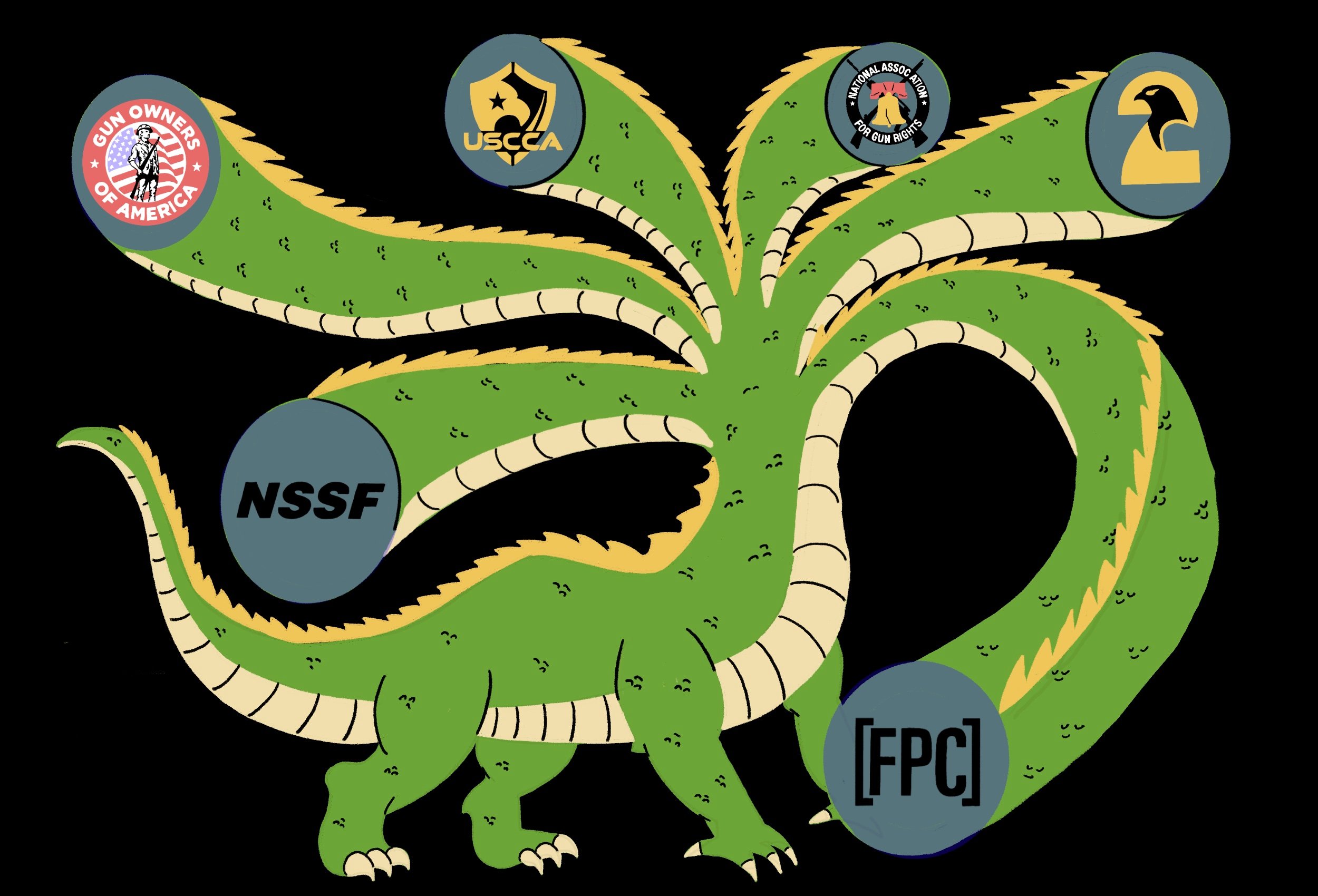Alleging widespread corruption and self-enrichment by leaders of the National Rifle Association, the New York State Attorney General’s Office is seeking to dissolve the gun rights organization.
In a civil complaint filed Thursday in New York City, the office names the NRA and details an array of misconduct by its chief executive Wayne LaPierre, its general counsel John Frazer, former chief operating officer Joshua Powell, and former treasurer Woody Phillips.
“The NRA, at the direction of the individual defendants and with a series of failures of required oversight by its board, has persistently engaged in illegal and unauthorized activities in the conduct and transaction of its business,” the complaint states. “Defendants abdicated all responsibility for ensuring that the NRA’s assets were managed prudently and in good faith.”
The NRA is chartered in New York and as a nonprofit, is subject to state oversight.
“It’s clear that the NRA has been failing to carry out its stated mission for many, many years,” said New York Attorney General Letitia James when announcing the lawsuit, “and instead has operated as a breeding ground for greed, abuse, and brazen illegality.”
James said the complaint “outlines dozens of examples” of such vice and that the defendants, “used millions upon millions of dollars from the NRA for personal use, including for lavish trips for themselves and their families, private jets, expensive meals, and other private travel.”
James announced her investigation in April 2019, shortly after The Trace, in partnership with The New Yorker, published a detailed report on financial improprieties at the NRA. The attorney general’s 164-page complaint cites several specific arrangements first revealed by The Trace, including the passing through of expenses to the NRA’s former marketing agency, Ackerman McQueen. The agency would cover the out of pocket expenses of LaPierre and other executives, then bill the gun group, which would pay the costs “without written approvals, receipts, or supporting business purpose documentation,” James said. She said that LaPierre and others should have reported those expenses as taxable income and that her complaint was being given to the Internal Revenue Service. (The NRA and Ackerman are estranged and fighting in court.)
Other significant problems referenced in the filing and first exposed by former Trace staff writer Mike Spies include the questionable track records of key employees, LaPierre’s unusual retirement package, and inadequate board oversight of financial expenditures.
James said that the four executives named in the complaint “overrode and evaded internal controls, to allow themselves, their families, favored board members, employees and vendors to benefit through reimbursed expenses, related party transactions, excess compensation, side deals and waste of charitable assets, without regard to the NRA’s best interests.”
She alleged that LaPierre, who has run the NRA since 1991, was “the central figure behind this scheme.” She pointed to several examples of LaPierre’s misuse of NRA money, including spending $3.6 million in the last two years on travel agent services, taking private trips to the Bahamas that have cost the gun group $500,000 and securing a post-employment contract with the NRA valued at $17 million without having gotten approval from the nonprofit’s board.
“It’s really very serious,” said James Fishman, an emeritus professor at Pace University School of Law and an expert in nonprofit governance. “LaPierre should be updating his resume.”
Fishman said he expected to see a settlement and that dissolution of the NRA is unlikely. Sean Delany, a former director of the charities bureau in the attorney general’s office, agreed.
“The AG’s complaint alleges substantial and disturbing financial wrongdoing by the NRA’s officers, but corporate dissolution is the most extreme remedy in a case of this kind,” Delany said. “It remains to be seen whether that bold prayer for relief can be justified by the extent of the self-dealing and misappropriation.”
Rob Pincus, an NRA member and spokesman for Save the Second, an organization that has sought change at the gun group and criticized its leadership, reacted somberly.
“None of us who have been pushing for NRA reform are celebrating today’s announcement,” he said. “It is tragic that the New York AG’s Office is having to step in and clean up the NRA.”
The NRA did not immediately respond to a request for comment, but described the suit on Twitter as “a baseless, premeditated attack on our organization and the Second Amendment freedoms it fights to defend. You could have set your watch by it: the investigation was going to reach its crescendo as we move into the 2020 election cycle.”
Barring a surprise settlement, the complaint is likely to result in a lengthy fight in state court. The NRA within hours filed a counter action in federal court that describes the attorney general’s complaint as part of a coordinated effort by New York officials to destroy the NRA.
In addition to dissolving the NRA, James’s complaint seeks an order requiring LaPierre, Frazer, Powell, and Wilson to return funds to the gun group, remove LaPierre and Frazer from the NRA’s leadership and bar the four men from serving on charity boards in New York State.
James said that her investigation is ongoing and if evidence of criminal acts is found, she will alert the Manhattan District Attorney’s Office.
The Office of Attorney General for Washington, DC, also filed an August 6 lawsuit against the NRA Foundation, an affiliate of the gun group, and the NRA for misuse and waste of charitable funds. That lawsuit seeks the return of money that the foundation provided to the NRA.
“Charitable organizations function as public trusts,” DC Attorney General Karl Racine said in a statement, “and district law requires them to use their funds to benefit the public, not to support political campaigns, lobbying, or private interests.”

